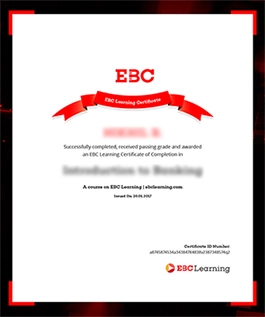Filing Class Action Suits and Shareholder Litigation
Navigate the complexities of corporate law with expert guidance on class action suits and shareholder litigation

Pay via EBC Webstore
Skills you'll learn
About Course
There exists a fine balance between the rights of the board to manage the corporation and shareholders’ right to judicial review. This course, with the above central theme, examines various instances and cases where shareholder litigation led to disturbing the balance. The cases and materials are directed towards derivative action suits versus class action suits as a remedy. Which is the better way to proceed against the management?
The course is an important part of understanding corporate governance and it displays the internal and external mechanisms of conflict.
- § Relevant sections
- § Relevant sections
- 1. 📕 Introduction to shareholder litigation
- 1.1 ▸ Introduction
- 1.2 ▸ Historical evolution
- 2. 📕 The legal framework for oppression and mismanagement
- 2.1 ▸ What is oppression?
- 2.2 ▸ Who can apply for oppression and mismanagement?
- 2.3 ▸ Grounds for filing an application under Section 241 of the Companies Act
- 2.4 ▸ What action can be taken on an application under section 241?
- 2.5 ▸ Consequences of modification or termination of agreements
- 2.6 ▸ What if the Tribunal errs?
- 2.7 ▸ Drafting tips for an application for oppression and mismanagement
- 2.8 ▸ Analysis of TCS v. Cyrus Decision
- 2.9 ▸ Arbitrability of Oppression and Mismanagement
- 2.10 📚 Readings
- 2.11 ✒ Exercises
- ☆ Feedback
- 3. 📕 Class action suits
- 3.1 ▸ Introduction
- 3.2 ▸ What are class action suits?
- 3.3 ▸ Historical evolution of class action
- 3.4 ▸ Limitations in the definition of class action suit
- 3.5 ▸ Who can apply for class action suits?
- 3.6 ▸ Powers of the Tribunal to grant relief
- 3.7 ▸ Extra-ordinary powers of the Tribunal
- 3.8 ▸ Procedure to be followed in case class action suit is submitted
- 3.9 ▸ Analysis of the Zee v. Invesco case
- 3.10 ▸ Analysis of the judicial trend
- 3.11 📚 Readings
- 3.12 ✒ Exercises
- 4. 📕 Comparative analysis of class action suits
- 4.1 ▸ Why is it popular in the USA?
- 4.2 ▸ Class action In India
- 4.3 ▸ Comparison: India, US and UK
- 5. 📕 Dispute resolution
- 5.1 ▸ Jurisdiction of courts
- 5.2 ▸ How to determine which court has jurisdiction?
- 5.3 ▸ Are exclusive jurisdiction clause in a contract enforceable?
- 5.4 ▸ Judicial precedents on enforceability of exclusive jurisdiction clause
- 5.5 ▸ Enforceability of foreign jurisdiction clause
- 5.6 ▸ Alternate dispute resolution
- 5.7 ▸ Is mediation and conciliation mandatory?
- 5.8 ▸ Drafting arbitration agreement
- 5.9 ✒ Exercises
- 𝍭 Index (Full Text of Cases)
- 𝍭 Index (Full Text of Cases)
- ☆ Feedback
Who should Take This Course?
Law Students and Recent Law Graduates, Lawyers, In-House Counsels, Legal Professionals who wish to switch to corporate practice or looking to kickstart a career as Transactional Lawyers, Chartered Accountants, Company Secretaries, Cost & Work Accountants, Government Officials, Academicians, Managers, Chief Executive Officers, Company Directors, Prospective Entrepreneurs, may take this course. The course would help launch law students into a career in corporate law and help practitioners develop their corporate law practice. Business professionals, advisors and managers interested in a detailed legal understanding of corporate affairs may take this course to hone their legal skills.
Instructors

Animesh Sinha
Partner, Animesh Sinha & Partners
Animesh Sinha has over 15 years of experience and has previously worked at Karanjawala & Co. He specialises in insurance law and his services have been retained by several insurers, top companies and other insurance intermediaries in India.
Certificate
Complete this course and exercises to earn a certificate. Share it with your friends, colleagues, and employers.*
*You must Subscribe to get a certificate.

-
Akanksha Gautam
Limit Reached or Trial Expired
You have reached the limit of 2 audit enrollments or your trial period has expired.

